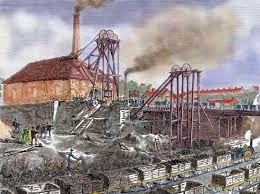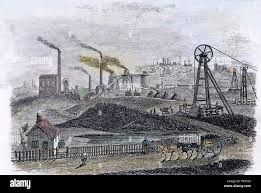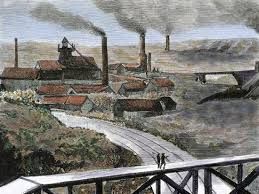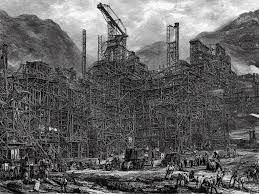In the previous centuries, before the advent of steam power, the first factories were powered by running water and their machines were majorly composed of wood.
The coming of steam power and easily affordable iron change this narrative and led to an evolution of new factories and highly productive industries.
With the discovery of iron and steam power, the wealth of Britain in the 19th century depended mainly on machines and systems made of iron and powdered by steam engines.
Although iron had been in use for many thousands of years but it was not much effective in as iron producers and professors had great problems which ensued in the early 18th century. They have usually depended on charcoal to heat iron ore in a furnace to purify raw iron but the shortage of wood made charcoal too expensive.
However in 1709, Abraham Darby of Coalbrookdale made a great achievement. He discovered a way of using Coke which is from coal to smelt the iron. The limitations to Darby's discovery was that it was only good enough for cooking pots and not for machineries in factories.
Furthermore, in 1784 Henry Cort invented a new method making a wrought iron in huge fired furnace with coal by stirring the molten iron and pushing it through enormous rollers which increases the production.
In the latter part, steel began to evolve as the basic material for industries. Steel is produced by mixing wrought-iron with carbon atoms. Steels although being discovered centuries ago remain too expensive for widespread consumption until 1856 when Bessemer's invented a container called 'Converter' which could make steel quickly and effectively.
That's all as the coal, iron and steam as regards this post with reference to British history.
Happy Blogging and Reading 💥💥💥💥
Video from Oer Project YouTuber




Yep, then came the separation of families as people were shuffled off of the land and into factories (with help from the Enclosure Acts). Also, colonialism, new financial instruments, globalization.
Thanks for the contribution
Appreciated a lot